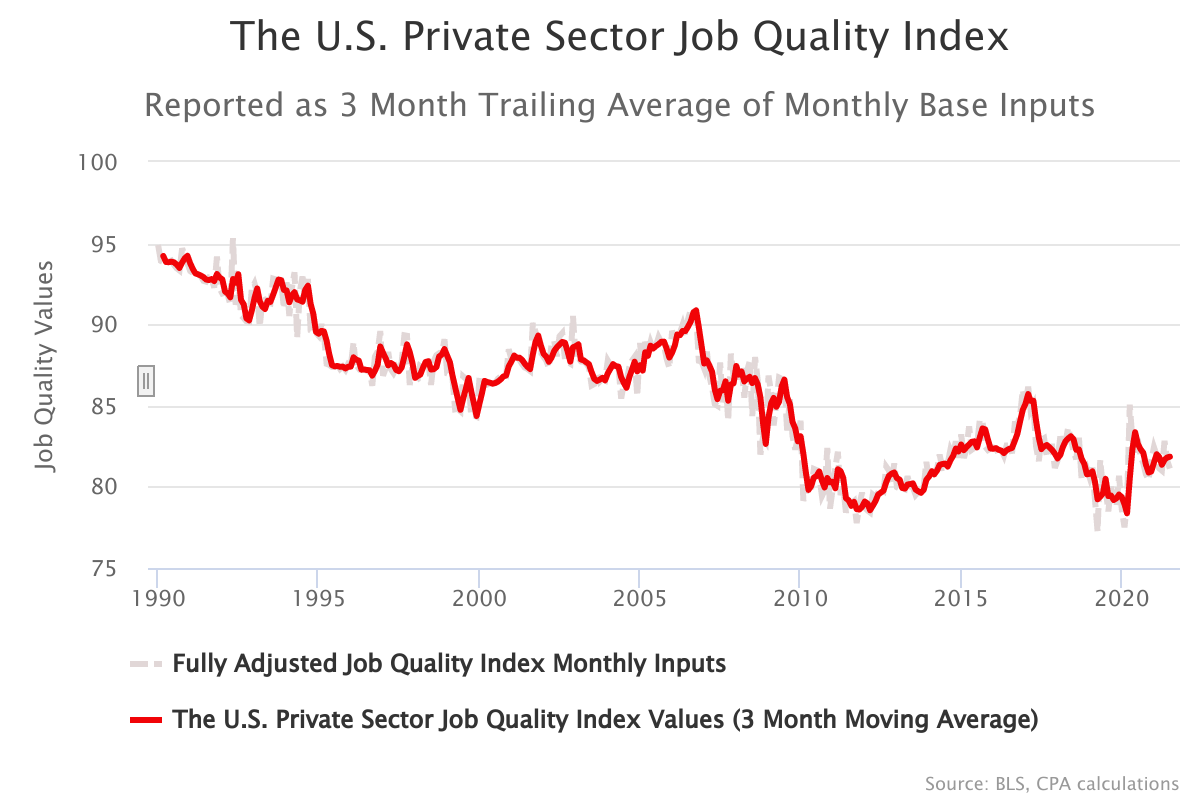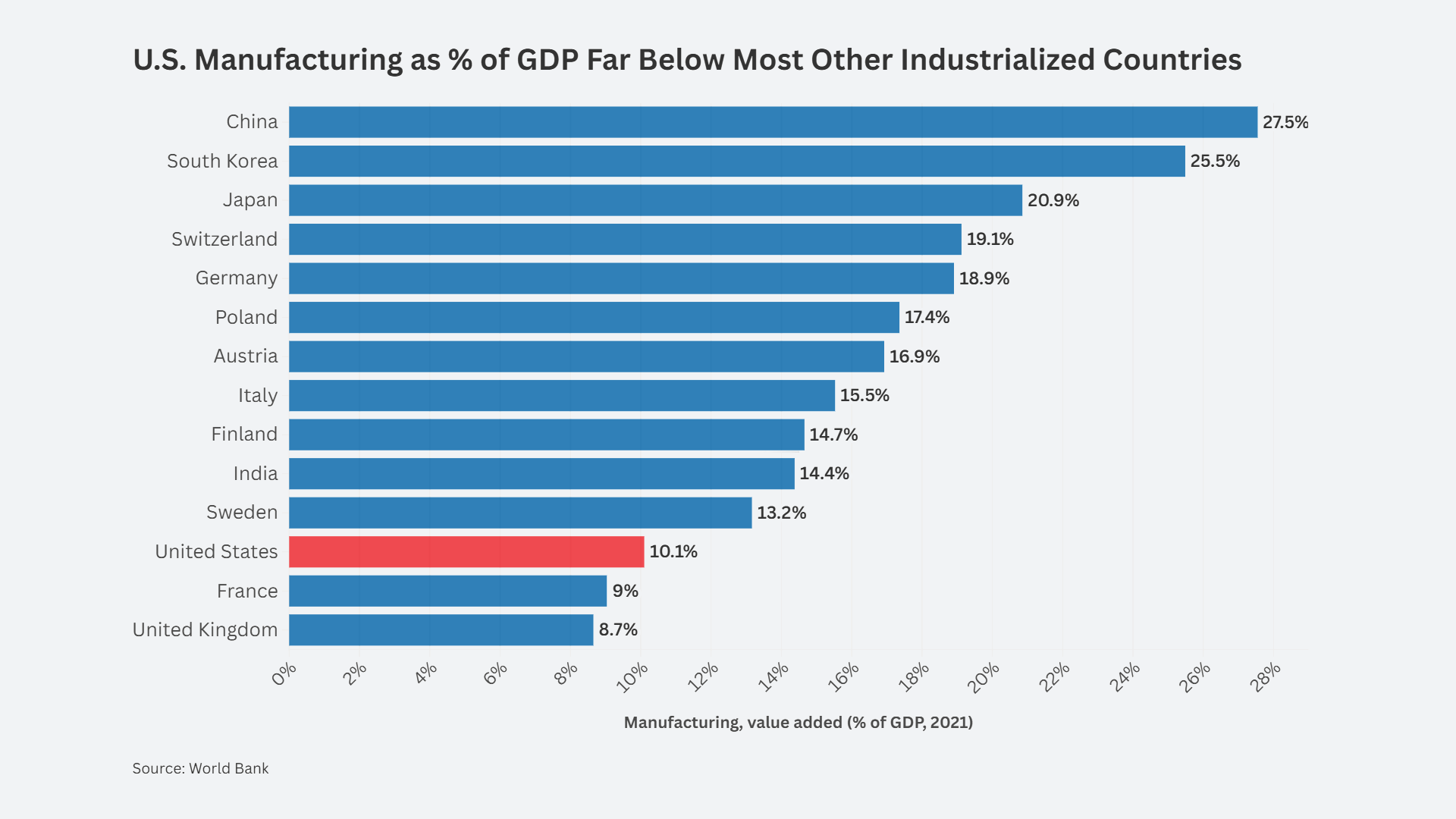WASHINGTON — The Coalition for a Prosperous America (CPA) today announced that the U.S. Private Sector Job Quality Index (JQI) rose slightly to 81.85 in July, up 0.04% from the previous month, as high-quality jobs increased in sectors including durable manufacturing, offsetting the increase in low-quality jobs in service sectors. Along with a rising JQI, the average weekly wage of production and non-supervisory workers continued to increase by $3.48 to $880.39, continuing a run of several months of rising weekly wages. The JQInstant reading of 0 for August reflects the pause in job growth in sectors including food service and retail in the most recent month.
The Job Quality Index measures job quality for U.S. production and non-supervisory workers by comparing workers’ weekly wages to the mean weekly wage for all non-supervisory workers. Those jobs above the mean are classified as high-quality and those below the mean are low-quality. The JQInstant measures changes in the most recent month in low-quality jobs as a share of the total jobs added in the month, based on a sub-sample of those sectors where BLS data is available with a shorter, one-month lag.
“The small uptick in job quality in the latest JQI reflects a rebound in the manufacturing sector over the summer, but with leisure and hospitality jobs still 1.7 million below pre-COVID levels, recovery from COVID, while it will be good news for job-seekers, is set to further depress job quality levels,” said CPA chief economist Jeff Ferry.
Employment Data
The Bureau of Labor Statistics reported today that the U.S. added 243,000 workers to payrolls in August. The figure was surprisingly low, and less than half the monthly job growth we had been seeing previously this year. This reflects a pause in low-quality job growth, due to resurgent COVID shutdowns and restrictions which have suppressed economic activity in sectors like restaurants and travel. Manufacturing jobs rose by 37,000 in August to 12,421 million, still 378,000 below pre-pandemic levels. With automakers announcing shutdowns of numerous assembly plants due to chip shortages, restrained manufacturing job creation is likely to continue in the fall even if the U.S. pandemic subsides.














